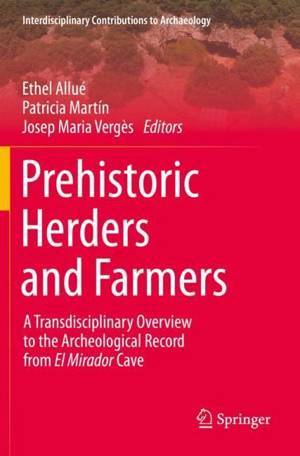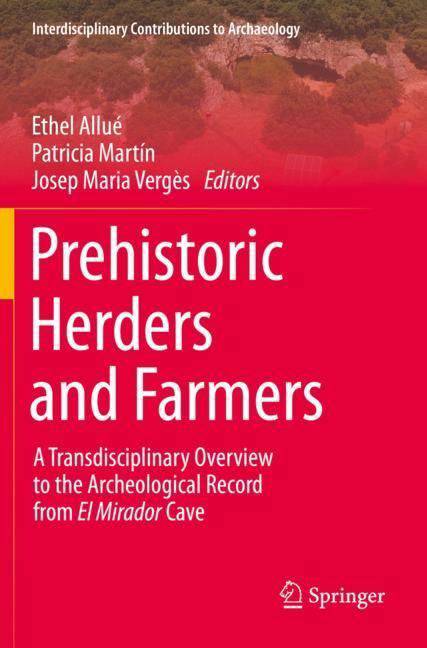
- Retrait gratuit dans votre magasin Club
- 7.000.000 titres dans notre catalogue
- Payer en toute sécurité
- Toujours un magasin près de chez vous
- Retrait gratuit dans votre magasin Club
- 7.000.0000 titres dans notre catalogue
- Payer en toute sécurité
- Toujours un magasin près de chez vous
Prehistoric Herders and Farmers
A Transdisciplinary Overview to the Archeological Record from El Mirador Cave
105,45 €
+ 210 points
Description
This book presents an interdisciplinary study of the El Mirador cave located on the Atapuerca karstic system, one of the longest Pleistocene and Holocene archaeopaleontological deposits in Iberia. This book presents the results including new unpublished and published data to discuss different aspects related to the prehistoric herders and farmers that occupied this territory.
Divided into four parts, the book covers site presentation and the paleoenvironmental reconstruction covering a chronological span between 7060 ± 40-3040 ± 40 yrs. The history of the excavation and the excavation methodology is detailed in this part including new unpublished recording techniques using 3D scanning and photogrammetry and a very meticulous sampling strategy. The book presents formation processes of the deposit which are key to understanding the successive occupations of the caves regarding its use as sheepfold cave as well as human remains that are part ofdifferent funerary contexts in the cave. In the last section, the book covers material culture found in the cave including lithic tools and pottery. This interdisciplinary work is of interest to scholars in anthracology, zooarchaeology, paleoanthropology, lithic technology, and experimental archaeology.
Spécifications
Parties prenantes
- Editeur:
Contenu
- Nombre de pages :
- 392
- Langue:
- Anglais
- Collection :
Caractéristiques
- EAN:
- 9783031122804
- Date de parution :
- 21-10-23
- Format:
- Livre broché
- Format numérique:
- Trade paperback (VS)
- Dimensions :
- 156 mm x 234 mm
- Poids :
- 580 g

Les avis
Nous publions uniquement les avis qui respectent les conditions requises. Consultez nos conditions pour les avis.





